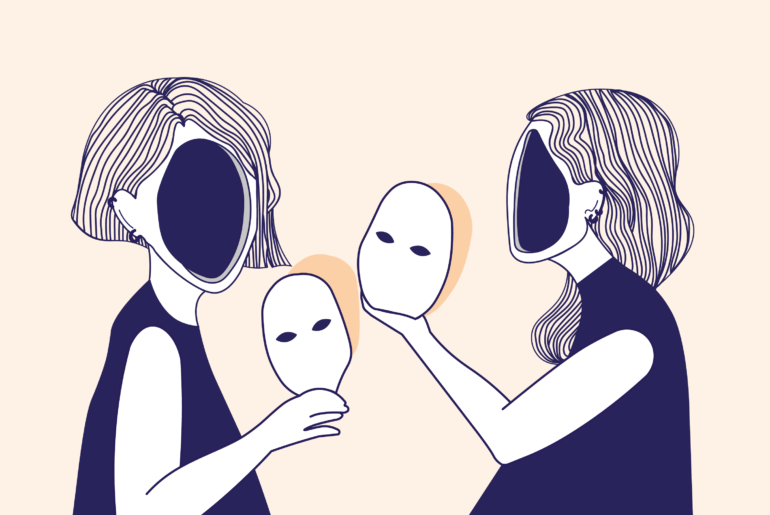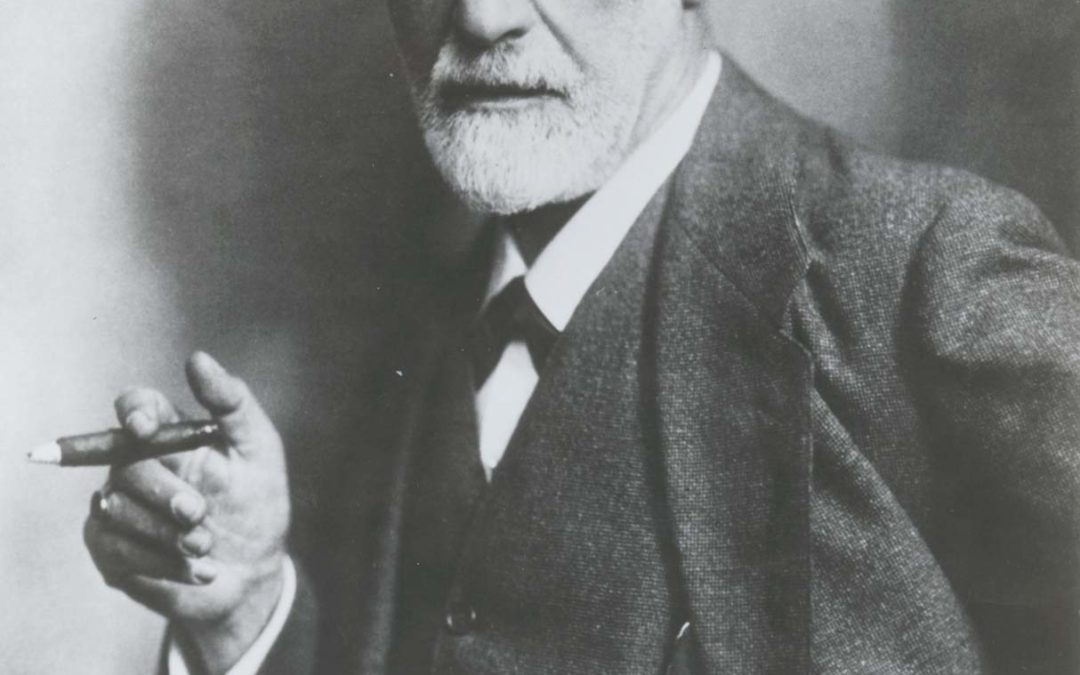Blog
¿Cómo opera un Psicoanálisis?
Un psicoanálisis opera a través de la palabra y la escucha. Se trata de un proceso en el que el paciente habla, sin censura, y el analista escucha de una manera particular, atendiendo no solo a lo que se dice, sino también a los lapsus, los silencios, las repeticiones y los modos en que el discurso se articula.
El objetivo no es ofrecer consejos ni soluciones directas, sino provocar movimientos en la manera en que el paciente se relaciona con su propio decir. A través de la interpretación, el analista introduce cortes, preguntas o intervenciones que generan efectos en el discurso del paciente. Esto permite que ciertos significantes ocultos emerjan, que se cuestione aquello que parecía incuestionable y que el sujeto pueda reubicarse frente a su deseo.
En este proceso, se trabaja sobre los efectos que el discurso inconsciente ha tenido en la vida del paciente—esos patrones, modos de ver el mundo y formas de respuesta que ha incorporado sin darse cuenta. Al modificar este discurso, también se abren nuevas posibilidades de vivir y desear de un modo menos determinado por lo que se ha heredado o aprendido, y más cercano a una posición subjetiva propia.
En última instancia, un psicoanálisis opera facilitando un espacio donde el sujeto pueda encontrarse con aquello que lo determina, pero también con la posibilidad de introducir una diferencia, de hacer algo distinto con su historia y su manera de habitar el mundo.
Mitos en psicoanálisis: el analista permanece en silencio.
Este malentendido tiene sus raíces en una interpretación errónea de los conceptos de neutralidad y abstinencia. Algunos analistas creyeron que debían permanecer en silencio para evitar que su subjetividad afectara su trabajo. Asumieron que esto significaba callar, abstenerse de reír, mostrar alarma o ser amigables. Sin embargo, el rol del analista implica una posición ética activa, que nada tiene que ver con proyectar una imagen pura y vacía (como si eso fuera posible).
Aún hoy, hay quienes cuentan que han acudido a un analista para compartir sus problemas más íntimos y han recibido nada a cambio. Entran en la consulta, se les indica dónde sentarse y, luego, se encuentran con el silencio. Los efectos de ese silencio varían según la persona, pero difícilmente sea una experiencia acogedora. Es importante aclarar que el silencio del analista no es, en sí mismo, una condición de neutralidad. No responder a ciertas demandas específicas no equivale a callar por completo. Y, además, no responder a una demanda no implica ser frío o distante.
Entonces, ¿qué determina la praxis del Psicoanálisis? :
Lacan introdujo el concepto de deseo del analista, lo que permite pensar la neutralidad de un modo menos imaginario. La función del analista es ocupar un espacio vacío, lo que significa no situarse como el objeto de deseo ni indicar cuál debería ser este. No responde desde un Ideal o una noción del bien, sino que enfatiza que lo valioso yace en otro lugar. Se ubica lo más lejos posible del Ideal, sin marcar un rumbo a seguir, sino indagando en cómo se desea.
Un análisis puede transcurrir en un entorno cálido, amigable e incluso atravesado por el humor. El analista puede hablar y decir cosas inesperadas sin que eso dañe su posición. El concepto de deseo del analista demuestra cuán errada es la idea de neutralidad y abstinencia entendida como la mera abstención de hablar. Lo fundamental, en cambio, es la posición ética del psicoanalista.

Closer to your own idea of good
An approach to Lacanian ethics in psychotherapy
“Evil lives off a certain idea of good” (Carmen Gonzalez Tabaos, 2019).
What is your idea of Good? Where do you find “Good”? And is this, in fact, the only question that psychoanalysis is allowed to ask?
Lacan says something fundamental: We do not work with the logic of intention (or what’s best for someone). We work with the logic of consequences.
So, what are the consequences of living in a certain way?
And just like that, we are talking about ethics in psychoanalysis: there is no fundamental Good, neither is there a recipe on how to be happy. But we have the possibility of taking the way we live and the consequences of our actions seriously.
The Weight of External Ideas in Subjective Life
In the therapy room, I work with individuals who live in a subjective and, therefore, particular and unique way. This unique way might be influenced by many different factors. Sometimes, outside factors can pressure people into certain actions and decisions. For example, “what society thinks that someone of your age needs to accomplish,” “what your religion commands you to do,” or “what your parents ask you to do or be. ”
Ideas of Good and how to live, sometimes come primarily from the outside world or from your loved ones. Then, you may live under ideas that are not aligned with you anymore and are not making you comfortable or happy. Also, other people’s ideas about how you should live can influence the most minor decisions without you noticing.
An Ethics of Respect for Singularity
The Lacanian ethic works with absolute respect for singularity. That is why directions of treatment are never the same; rather, they depend on the simple fact that each individual is considered unique in their singularity. For example, I can receive two people who both experience panic attacks. But my approach is different in each case. The physiological symptoms in a panic attack might be similar, but the origin and reason are not the same.
This respect for singularity is the opposite of what happens in medicine. Doctors check your symptoms, give you a diagnosis, and prescribe preexisting treatment to cure not just you but everyone else with the same symptoms. In psychoanalysis, it is important to never “put someone in a box” and never leave out the singular experience.
Clinical Listening and Interpretation
The therapy room has two essential tools operating within this ethic: clinical listening and interpretations.
Listening to Lacanian psychoanalysis is free of judgment. Not having prejudices about your client enables you to focus on the most essential thing: your client’s singularity. The key is not making assumptions and keeping an open mind when hearing your client’s stories.
The analytical device seeks to offer a different level of understanding about yourself. To do this, it’s essential to build curiosity about why things are the way they are. It takes you out of your comfort zone because not knowing sometimes is more effortless. Curiosity will keep work going, session after session.
This leads to the possibility of asking another fundamental question: Why does this happen to me? Is it “bad luck”? Or is it something more profound in which I am involved?
Lacanian interpretations aren’t made to be “understood” but to provoke movement and generate ways out of determination. Sometimes, this can be as simple as asking a question. In my analytical experience (and as someone who does psychoanalytic treatment herself), I see it as being offered alternative points of view so I can see myself clearly and, therefore, make different movements.
Psychoanalysis as an Opening to New Ways of Living
The difficult work of questioning oneself has real effects. Gradually, new frameworks of freedom emerge—ways of reacting, deciding, and living that were not available before. As an analyst, I explore each patient’s willingness to engage with these fundamental questions.
For me, the most important thing is that people do not hide—that they step forward and question what causes their suffering. Little by little, this opens the possibility of finding new ways of inhabiting the world, ways that are more aligned with their own desires rather than imposed by others.

Un bien más propio
“El mal vive de una cierta idea del Bien.” — Carmen González Tabaos, 2019
¿Cuál es tu idea del Bien? ¿Y es esta la única pregunta que el psicoanálisis se permite hacer?
Con Lacan aprendemos algo fundamental: como analistas, no trabajamos bajo la lógica de las intenciones, ni de lo que sería mejor para alguien. Trabajamos con la lógica de las consecuencias.
Entonces, ¿cuáles son las consecuencias de tu manera de gozar?
Así de simple, ya estamos hablando de ética en el psicoanálisis lacaniano: no hay un bien absoluto ni una fórmula para la felicidad. Lo que tenemos son las consecuencias de nuestra forma de vivir. Analizarse abre la posibilidad de tomarse en serio esas consecuencias.
La influencia de lo externo en la vida subjetiva
En la práctica clínica, me encuentro con sujetos deseantes, cada uno viviendo de manera singular. Muchas veces, escucho cómo ciertos factores externos moldean la vida de una persona: lo que está bien para la sociedad, lo que dicta la religión, lo que enseñaron los padres. Son ideas del Bien que vienen del afuera, de seres queridos o de instituciones. Y puede ocurrir que, de pronto, alguien ya no se sienta cómodo bajo ciertos mandatos. A veces, esas ideas influyen en las decisiones más pequeñas, más de lo que nos gustaría admitir.
Escucha clínica e intervenciones análiticas
En el consultorio, varias herramientas operan dentro de esta ética, por ejemplo, la escucha clínica y la interpretación.
La escucha en psicoanálisis lacaniano está libre de juicios. No tener prejuicios sobre quien se atiende permite enfocarse en lo realmente importante: su singularidad. La clave es no hacer suposiciones, sino escuchar posiciones.
El dispositivo analítico busca generar una nueva forma de comprensión sobre uno mismo. Para ello, es necesario despertar la curiosidad sobre por qué las cosas son como son. En este sentido, el análisis puede resultar incómodo: no saber a veces es más fácil. Pero la curiosidad es lo que mantiene el trabajo en marcha, sesión tras sesión.
Esto nos lleva a otra pregunta fundamental: ¿Por qué me pasa esto a mí? ¿Es “mala suerte”? ¿O hay algo más profundo en lo que estoy involucrado?
Las interpretaciones lacanianas, sin embargo, no están hechas para ser entendidas de manera racional, sino para generar movimiento, para sacudir lo determinado. A veces, esto puede ser tan simple como hacer una pregunta. En mi experiencia como analizante, lo he sentido como si me ofrecieran nuevas perspectivas, en lugar de explicaciones sobre “cómo soy”.
La apuesta del psicoanálisis: nuevas formas de habitar el mundo
El arduo trabajo de cuestionarse a uno mismo trae sus resultados. Gradualmente, surgen nuevos márgenes de libertad: en cómo reaccionar, cómo decidir, cómo vivir. Como analista, mi tarea es explorar la disposición de mis pacientes a abrirse a estas preguntas esenciales.
Para mí, lo más importante es que las personas no se oculten, sino que salgan, que cuestionen aquello que las hace sufrir y que, poco a poco, encuentren nuevas maneras de habitar el mundo, más acordes a un deseo propio y menos regidas por lo impuesto.

El cuerpo inconsciente, la defensa
Hay pacientes que llegan derivados por otros médicos que no han logrado curarlos de sus dolores, porque descubren que esos dolores no tienen correspondencia con ningún problema fisiológico. Es interesantes recibir aquellas personas.
Con Freud aprendemos a preguntar: ¿Cuándo te empezó a doler? Esta pregunta no pretende ser mágica ni quitar el dolor de un momento a otro. Pero abre la posibilidad de hallar una vivencia que subjetive lo que para los médicos se presenta como algo objetivo.
La convicción del psicoanálisis es no olvidar que existe un motivo por el cual los neuróticos prefieren aguantar, soportar y acarrear un dolor en el cuerpo antes que recordar.
⠀⠀⠀⠀⠀⠀⠀⠀
Alteraciones en la piel, dolores en las piernas, infecciones crónicas, congestiones crónicas, problemas gastrointestinales, insomnio, dolores de muelas, enormes dolores de cabeza
⠀⠀⠀⠀⠀⠀⠀⠀⠀… defensas -paradójicamente- de sentir otra cosa, de recordar.
⠀⠀⠀⠀⠀⠀⠀⠀
⠀⠀⠀⠀⠀⠀⠀⠀
Para los analistas el dolor físico es una brújula en un psicoanálisis. Nuestra pregunta ¿Cuándo empezó? contiene la suposición de que el dolor físico se vuelve el único antídoto –aunque fallido- contra el dolor de recordar.
⠀⠀⠀⠀⠀⠀⠀⠀⠀
¿Qué tan doloroso es recordar?

Artículo sobre el amor
Los engaños, el fin del amor, las separaciones. Casamientos y abandonos. Los que reniegan del compromiso o los que tienen terror al fracaso. Me gusta pero no sé qué hacer. Quiero terminar la relación pero no me animo. ¿Qué hago si me deja? Sexo sin amor, amor sin sexo, amor con contratos. Amor para siempre, amor por un minuto. Amor a primera vista. Sexo y amistad. Sexo a escondidas, esconder el amor.
⠀⠀⠀⠀⠀⠀⠀⠀⠀⠀⠀
-Tal vez ya no me ama.
⠀⠀⠀⠀⠀⠀⠀⠀⠀⠀⠀
-Solloza.
⠀⠀⠀⠀⠀⠀⠀⠀⠀ ⠀⠀⠀⠀⠀⠀⠀⠀⠀⠀⠀
-¿Cómo se vive sin ella? Cree que una separación sería arrancarse una parte de sí misma.
⠀⠀⠀⠀⠀⠀⠀⠀⠀⠀⠀
Es cierto que nadie te completa porque no estás incompleto, que no existe la media naranja porque no sos una mitad. Pero la ausencia duele.
El amor es apostar sin saber la fecha de vencimiento, es correr el riesgo.
Hace un tiempo que vengo escuchando lo siguiente: “puedo vivir sin vos pero te elijo”. Bueno, no es siempre así. A veces no se puede y duele.
⠀⠀⠀⠀⠀⠀⠀⠀⠀⠀⠀
Quiere una vida con ella pero ella ya no la quiere. Es momento del final, es un momento de cierre.
⠀⠀⠀⠀⠀⠀⠀⠀⠀⠀⠀
-¿Volveré a sentir algo? Le preocupación de que junto con ella también se vaya la capacidad de sentir.
⠀⠀⠀⠀⠀⠀⠀⠀⠀⠀⠀
Sé que hay pérdidas que duelen, que los finales no son fáciles, pero también el fin es lo que trae un nuevo comienzo. Es posible hacerse fuerte en los lugares dónde algo te rompió. Reinventarse. Flor nueva de romances viejos. O como dice un famoso cantautor “es el amor después del amor”.
Contáctame
Cualquier pregunta que tengas podes contactarte o directamente pedí una consulta a través de la web.
